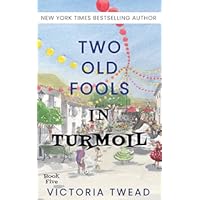Spain’s Musical Heritage
Spain, a land renowned for its diverse cultural tapestry, is equally celebrated for its vibrant musical traditions. From the soulful strumming of flamenco guitars in Andalusia to the lively rhythms of Galician bagpipes, music is an integral part of the Spanish psyche. As travelers wander through Spain’s bustling plazas, they encounter street musicians playing everything from classical Spanish guitar to modern pop hits. Festivals like Seville’s April Fair and Pamplona’s Running of the Bulls are as much about the music as they are about the festivities. In Barcelona, the haunting melodies of Catalan rumba echo through the Gothic Quarter, while in Madrid, the passionate voices of copla singers fill the air. Spain’s musical heritage is not just a backdrop; it’s a living, breathing part of the country’s identity.
Flamenco: The Heartbeat of Andalusia
In the sun-drenched streets of Seville, the hypnotic rhythms of flamenco can be heard echoing from every corner. Born in the heart of Andalusia, this passionate art form combines song, dance, and guitar into a fiery expression of emotion. Travelers visiting the region often find themselves drawn to intimate flamenco shows, where the raw power of the music leaves a lasting impression. Flamenco is more than just a performance; it is a reflection of the Andalusian spirit, a blend of cultural influences from the Moors, Gypsies, and Spaniards. Watching a flamenco dancer’s intricate footwork or a guitarist’s nimble fingers is a mesmerizing experience. Visitors can immerse themselves in this world by attending a tablao flamenco or visiting the flamenco museums in Seville and Jerez de la Frontera. Flamenco is the heartbeat of Andalusia, and experiencing it firsthand is a must for any traveler.
The Sounds of Galicia
In the misty hills of Galicia, the haunting notes of the gaita (bagpipe) fill the air, a sound that has been part of the region’s identity for centuries. Galicia’s musical traditions are deeply rooted in its Celtic heritage, with folk songs and dances that have been passed down through generations. Travelers to this green corner of Spain can attend local festivals like the Festival Internacional do Mundo Celta in Ortigueira, where musicians from around the world gather to celebrate Celtic culture. The music of Galicia is as varied as its landscapes, from the lively rhythms of the muiñeira dance to the mournful tunes of the alalás. Visitors can explore the region’s musical heritage at the Museo do Pobo Galego in Santiago de Compostela, which houses an extensive collection of traditional instruments. Whether enjoying a pint of local cider in a village tavern or attending a festival, Galicia’s music is an essential part of the experience.
The Rhythms of Rumba Catalana
Barcelona, a city known for its artistic flair, is also the birthplace of rumba catalana, a lively fusion of flamenco, Cuban music, and rock ‘n’ roll. This infectious genre emerged in the 1950s and has since become a defining sound of Catalonia. Visitors strolling through the city’s vibrant neighborhoods might stumble upon street performers playing rumba catalana, their upbeat rhythms inviting passersby to dance. The music is characterized by its catchy melodies, hand claps, and the distinctive taconeo (foot stomping) that gives it a unique flair. Travelers can experience rumba catalana at local festivals, such as the Festa Major de Gràcia, where the streets come alive with music, dancing, and colorful decorations. For a deeper dive into this musical style, the Museu de la Música de Barcelona offers exhibits on the history of rumba catalana and its influence on the city’s cultural scene. In Barcelona, music is everywhere, and rumba catalana is its joyful anthem.
Conclusion: Spain’s Musical Journey
As travelers journey through Spain, they find that music is an ever-present companion, a reflection of the country’s rich cultural diversity. From the passionate flamenco performances in Andalusia to the Celtic-inspired melodies of Galicia, each region offers its own musical treasures. In the bustling streets of Madrid, the soulful sounds of copla and zarzuela provide a glimpse into the city’s artistic soul. Meanwhile, in the Basque Country, the unique rhythms of txalaparta (a traditional percussion instrument) resonate with the spirit of the land. Spain’s musical journey is a tapestry of sounds, a celebration of its people and their enduring cultural heritage. For travelers, experiencing the music of Spain is not just an auditory delight; it’s a doorway into the heart of the nation.





